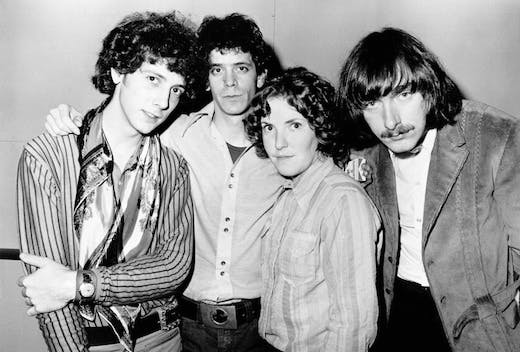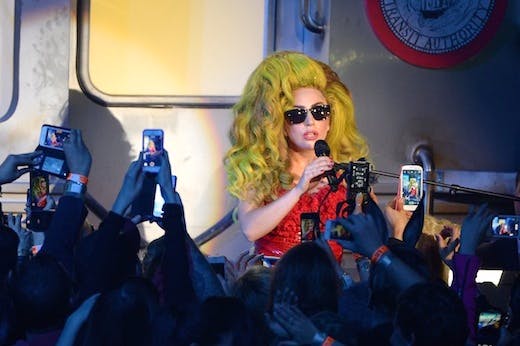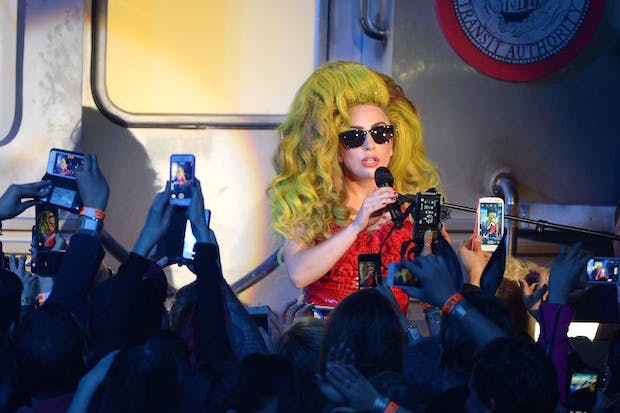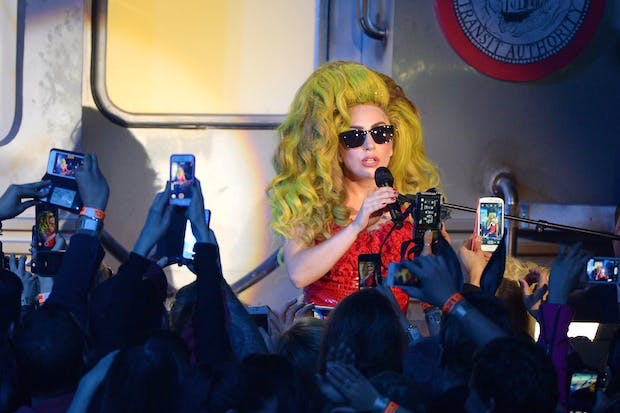The film critic Anne Billson wrote a typically pugnacious piece recently about the phrase ‘guilty pleasures’, which has spread like Japanese knotweed beyond its origins in pop music and taken root throughout popular culture. In film a guilty pleasure would be something like Four Weddings and a Funeral, which we’re not ‘supposed’ to like because it’s not La Règle du Jeu, but which we do like very much because it’s fab. My nomination in this category, and a possible reason my career as a film critic never quite reached the heights, would be Star Trek II: The Wrath of Khan. You might think that Citizen Kane or Vertigo is the greatest film ever made, but which of them has Ricardo Montalbán quoting Moby-Dick or Mr Scott playing the bagpipes? One man’s guilty pleasure is another’s palpable greatness.
Pop is overrun by the guilty pleasures infestation. Critical consensus decided decades ago that the music of the Velvet Underground was more substantial and important than that of Abba, say, and the fact that no jukebox musical has yet been compiled from the toe-tapping tunes of Lou Reed is a travesty and an outrage. This carefully separates the music we merely enjoy from the music we regard with respect, humility, even awe. But no one chooses the music they like; the music chooses us. The fact that the orchestral outro of ‘Mr Blue Sky’ means more to me than the entire recorded works of the Clash is just that, a fact. I no more decided it than I decided to be white, heterosexual or devilishly good-looking in a low light.
 The Velvet Underground Photo: Photo by Michael Ochs Archives/Getty Images
The Velvet Underground Photo: Photo by Michael Ochs Archives/Getty Images
‘Guilty pleasure’ thus becomes a convenient way of ghettoising inconvenient tastes. The main thing is that the professional critic can maintain his distance (and it’s almost always ‘his’) from the rest of us who actually buy our records. The other day, wasting time on the internet, I chanced upon a list of the eminent US critic Robert Christgau’s 85 best records of 2013. (Why 85? Why not the full hundred?) Of these 85 I had listened to two and not really liked either. I had heard of another 18 — Lady Gaga and Beyoncé were there, alongside the Handsome Family and Four Tet — which left 65 records I knew nothing about at all. And I actually try and pay attention. So what use is this list, other than to tell us that silly old Christgau is much cooler than the rest of us? And how interesting is that?
The role of the professional critic is under increasing scrutiny in all fields of endeavour, as expertise and aesthetic judgment are gradually phased out in favour of online shouting. But in pop, the critics often don’t do themselves any favours. Jo Whiley’s evening shows on Radio 2 carry occasional album reviews, and the young critics they use appear to be liberated from good sense by the proximity of a microphone. One of them, confronted last autumn by the new Elton John album, simply said with a chuckle that he could not see any reason why anyone would want to listen to this. In other words, he was too cool to review it properly. I’m a long-standing fan of Radio 2 but at that moment I wanted the building firebombed.
 Lady Gaga live at Roseland Photo: Getty
Lady Gaga live at Roseland Photo: Getty
There are, in fact, some excellent pop critics around, and I won’t destroy their reputations by naming them here. As one of them says, it’s an easy job, but someone’s got to do it. To be effective, though, you need a particular kind of mindset. You need to be able to listen to an awful lot of music, and make useful judgments on it at speed. What you don’t have time to do is to marinate yourself in the music you love, or listen repeatedly to a record you’re not quite sure about to see whether it’s any good. In short, there is no room for guilty pleasures. It’s a much more disciplined, Stakhanovite existence than yours or mine, which is why so many of them have those wild eyes.
The guilty pleasures are left to us, except that there’s no guilt involved, just pleasure. ‘Scotty, I need warp speed in three minutes or we’re all dead!’ Now that’s what I call dialogue.
Got something to add? Join the discussion and comment below.
Get 10 issues for just $10
Subscribe to The Spectator Australia today for the next 10 magazine issues, plus full online access, for just $10.












Comments
Don't miss out
Join the conversation with other Spectator Australia readers. Subscribe to leave a comment.
SUBSCRIBEAlready a subscriber? Log in